If you like assembling gadgets and are technical minded, you might be interested in becoming an HVAC technician. HVAC is a very lucrative field with an ever-growing job market, especially in Pennsylvania.
If you are looking to get into the HVAC industry, getting professional training might actually be a good idea, as there’s a lot to learn, and training could accelerate your career and take you far. The potential is virtually endless.
This article is specific to the state of Pennsylvania and will discuss in detail what your training entails, your options for HVAC training and certificates, and the job prospects and salary for HVAC trainees.

How to Become an HVAC Technician in Pennsylvania
The improvement in the chances for an HVAC career can be observed all over Pennsylvania. This fact compels many job-seeking individuals to make efforts to meet the requirements for joining the HVAC world.
To practice as a legal and professional HVAC employee, you must follow the steps listed below.
- Your age must be 18 at the minimum.
- You must be proficient enough to install, repair, maintain, and replace HVAC systems properly. This is possible if you get training from a certified HVAC institute. Therefore, it’s necessary to take admission in any HVAC school, receive education, and earn a competent diploma, associate, or graduate degree.
- You must apply for an ICC exam for which you will be asked to pay about $150 as an exam fee.
- The International Council Code (ICC) will take your test to examine if your expertise is up to the mark. This test cannot be avoided, and you need to secure 70% marks.
- Lastly, if your city instructs you to get a license, you must get one appropriate to the designation you plan for. The license requirement is not state-wide in Pennsylvania. Instead, a few cities have made it compulsory to own a valid license before entering the HVAC industry as a worker.
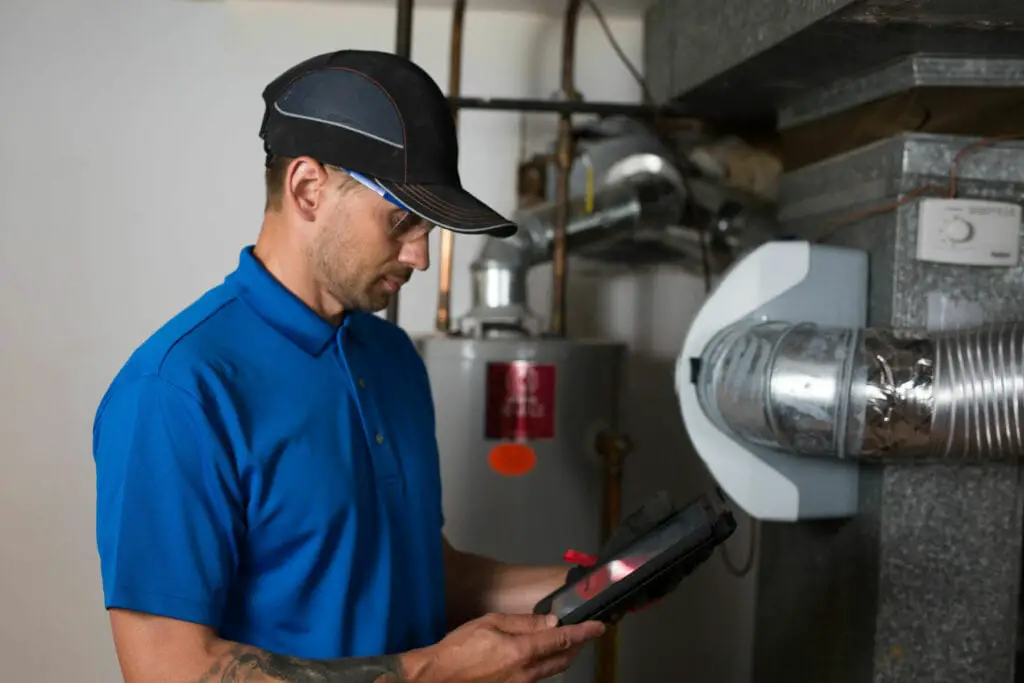
What Makes Pennsylvania a Great Place to Start an HVAC Career?
We can assess the progress of HVAC careers in this region by the increasing number of people applying for jobs in this field.
Why is that so? And what makes Pennsylvania fascinating for HVAC jobs? Here are some aspects:
Numerous HVAC Schools
There are a plethora of schools providing high-quality skills through hands-on lab training and informative classroom lectures in Pennsylvania.
Apart from this, the state is home to skillful teachers and lecturers who have massive experience and knowledge, and then they share it with the HVAC employees-to-be.
High Pay
An employee does not find anything other than a salary of utmost importance, and he never lets a job slip from his hands if he is happy with the pay-scales. So, as for the HVAC industry in this state, the pay scale is another factor that attracts people the most.
In Pennsylvania, HVAC workers earn wages far more than national average salaries.
Ease of Procedure
The state has kept the application process very convenient, so aspiring candidates would not have to face troubles. It has alleviated the restriction of HVAC license and certification, meaning people don’t have to go through tedious licensure formalities to find the desired job in their desired field.

How to Get a PA HVAC Journeyman License
Pennsylvania has no strict demand for an HVAC license. But some of its cities have included a license as a mandatory formality for a journeyman and other posts.
Likewise, those cities have also scheduled eligibility criteria for the acquisition of the license.
Here, we’ll discuss in detail what is needed to qualify for the license.
- EPA certificate is essential for becoming an HVAC journeyman. This certificate mainly serves workers whose job involves handling refrigeration equipment.
- Then you will initially perform duties as an apprentice under the supervision of an expert, registered contractor, and continue practicing for four consecutive years. After the completion of a four-year apprenticeship, you will have to approach the International Council and request an apprenticeship certificate.
- Candidates can go for an alternative to an apprenticeship. If the applicants show convincing proof that they possess years of experience practicing with HVAC equipment, they can be declared eligible for the next step.
- Then, there will be a journeyman exam which will be conducted at the end of the whole procedure. On passing this exam, the candidate will be recognized as an HVAC journeyman.
What Tests Do You Need to Be an HVAC Worker in PA?
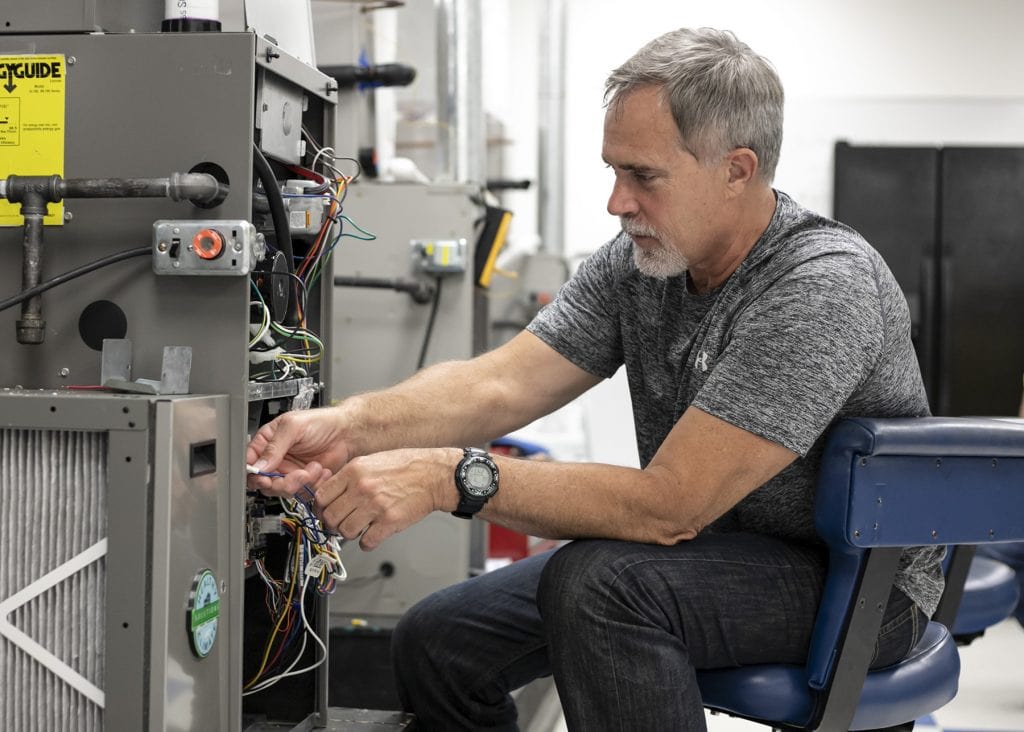
People who want to work in this industry have to give some tests according to the post they apply for. The most common test is the one for EPA certification. Refrigeration contractors need this certification the most.
By acquiring this certificate, you can strengthen your chances of getting selected in renowned HVAC companies.
Moreover, you also give a test for the HVAC school degree, accredited with NATE, EPA, and other excellent organizations.
Then finally, an exam will be taken to provide you the license you need. The sequence and type of questions and duration will be different for all license tests, depending on which post you apply for.
Job Outlook and Salary For HVAC in Pennsylvania
The industry is also popular in Pennsylvania because of the handsome salaries offered here. Even beginners get satisfying wages as compared to those of local technicians. Also, the industry ensures an increase in wages with the advancement in job rank.
Average Income For an HVAC Tech in Pennsylvania
The median salary of HVAC employees is $65,640 yearly or $31.65 hourly.
Entry-Level
At the early stage, HVAC employees are referred to as entry-level workers. They don’t have enough experience at that point. Still, they make around $26,140 annually.
On promotion, they achieve the designation of junior technicians and earn $33,181 per year.
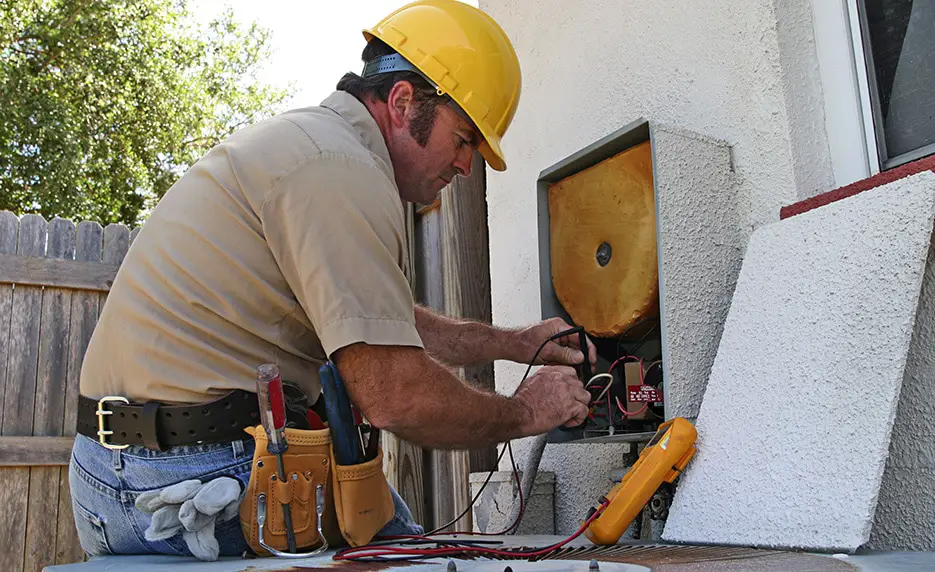
Mid-Level Technicians
Their salaries are moderately decent and lie between $44,000 and $50,000.
Expert-Level Technician
They are highly proficient at their tasks. This is why they get the highest pay around $71,558 annually, almost equal to $34.40 per hour.
Besides salaries, the discipline maintained by the industry helps employees focus on their jobs and perform their best.
Insurance and Tax Information For HVAC in PA
HVAC considers safety as a priority. To make sure that each employee stays safe while installing and repairing bulky air conditioning and refrigeration units, it proposes four types of feasible insurance programs: commercial general liability, commercial property, errors and omission, and workers’ compensation.
All these insurance plans intend to relieve employees from the burden of hospital bills if they undergo any accident or dangerous situation.
Moreover, the expenses of repairing the property and equipment, damaged as a result of any unfortunate mishap, will also be dealt with by the insurance plan.
Like every other industry, HVAC also has to pay substantial taxes to the federal authorities. The amount of tax varies with the vastness of the business and from city to city.
What You’ll Learn in Your HVAC Training
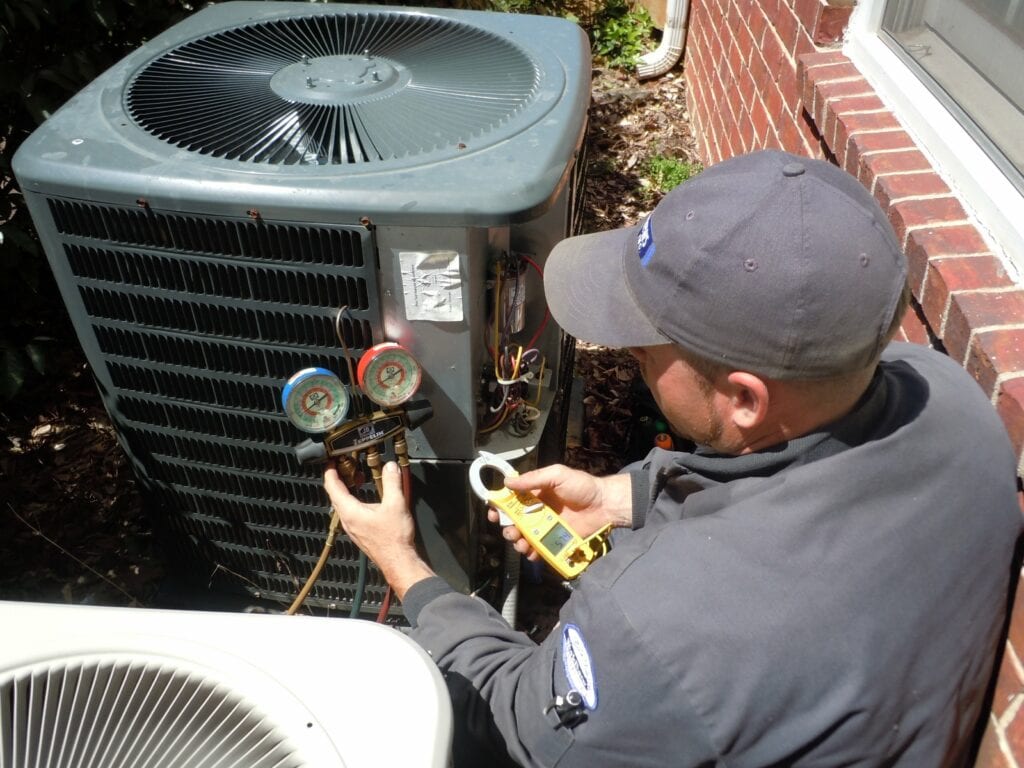
So, what happens after you begin your HVAC training?
You will most likely learn about the most important things to know about HVAC as a technician, including knowing how to inspect the elements and diagnose issues with the Heating, Ventilation, Air Conditioning systems, and possibly Refrigeration.
Repairing and maintaining HVAC systems is one of the most common things you’ll need to do as a technician so you will definitely learn about that, and installing equipment is also a very important aspect of the job.
You will also learn about state, federal, and local legislations, as you are required to comply with the law while working on projects. In Pennsylvania, you might also learn how to effectively avoid the sick building syndrome by efficiently utilizing ventilation systems.
Other specific topics in HVAC specialization includes natural gas piping, ACR tubing, sheet metal operation, duct sizing, ergonomics, mechanical code, refrigerant handling, ergonomics, best practices, and even customer relations. Many schools will also prepare you for various certifications required for HVAC technicians as part of their training, to provide a smoother transition into the career field.
Opportunities to Learn the Trade
Pennsylvania has a very high demand for HVAC technicians and ranks in the top 5 states for HVAC employment, as well as having an explosive job growth in the field. So there are quite a few options when it comes to HVAC technical schools in Pennsylvania.
Your options include Brightwood Career Institute, which offers extensive training in HVAC/R. They have five locations throughout Pennsylvania including Pittsburgh, Broomall, Harrisburg, Franklin Mills, and Philadelphia.
Another great option is the YTI Career Institute (YTI), which offers training that is 9 to 21 months in length, and offer a specialization in Heating, Air Conditioning & Refrigeration Technology. They have three locations in Altoona, York, and Lancaster.
All State Career School is located in Pittsburg and offer extensive HVAC training, as they specialize in welding and HVAC. Last but not least is Fortis College, and they offer technical training in the field of HVACR. They have three locations in Pennsylvania including Erie, Forty Fort, and Scranton.
Certification Required?
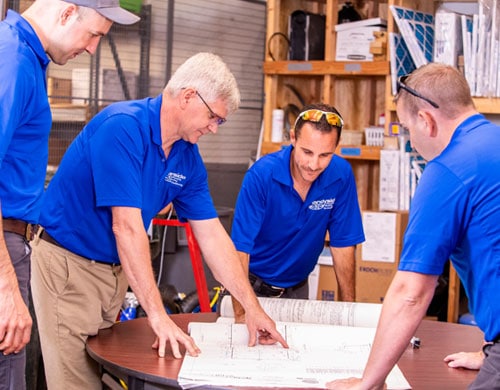
In the state of Pennsylvania, there are currently no certification or licensure requirements for most contractors. However, some cities may require you to have an HVAC contractor license to install, repair, or alter mechanical systems in the city.
Also, you might need to get certain certifications and licenses depending on your project, which can include the Manufactured Housing Installers Certification, Home Improvement Contractors Registrations, Crane Operators Licensure, Asbestos and Lead Removal Certification, and Municipal Certification and Licensure.
If you are looking to become certified then you can find qualified HVAC schools and programs in Pennsylvania.
Conclusion
In this economy, there are few fields with job growth as dynamic and big as HVAC in Pennsylvania. Pennsylvania has a rapidly growing job market and the demand for skilled HVAC workers, as the state offers hot summers and cold winters and HVAC systems are an essential part of any residential and commercial complex.
The demand for HVAC technician is only going to grow in Pennsylvania, offering skilled HVAC technicians the job security and stability they need, which is why now may be the best time, especially if you are located in Pennsylvania, to get specialized training in HVAC and make the transition.
People Also Ask
To make it easier for our readers and maximize their understanding of HVAC in Pennsylvania, we have compiled a list of questions that applicants most frequently have.
The contractor and trade licenses stay valid for one year only. Once the year finishes, a grace period is provided that lasts for the next 60 days. If you fail to renew your license in this period, a late fee will be added to the license renewal charges.
First of all, you will pay for a degree if you decide to take EPA certification from an HVAC college. You will find courses of different durations, but the entire program can cost you around $10,000. In the last step, you will pay the exam fee, which is approximately $150 per exam.
Some of the cities of Pennsylvania accept only those technicians that are licensed and certified. If the license expires, the state wants the employees to renew it at the earliest. On the other hand, some cities don’t have licenses as a requirement for technicians.
In such locations, people can apply for an HVAC job without any license.
The license cost is not fixed for all cities of Pennsylvania. Instead, it depends on the progress level of the HVAC industry in each city. Few cities don’t require a license to practice as a technician at all.
Yes, you can get an online certification if the trade school runs online classes. Many schools in Pennsylvania administrate online classes in which they teach all or selected courses to the students. If your institute provides you this facility, you can surely reap benefits from it and become a qualified HVAC technician.
Looking For Information On Nearby States?
You might also be interested in HVAC licensing requirements in bordering states:

